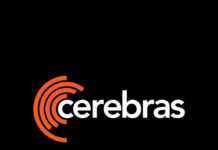Atlanta—November 18, 2024—Lenovo, recognized as the leading provider of supercomputers globally, has introduced groundbreaking innovations that promise to redefine energy efficiency and boost computing power. These advancements are designed to support researchers in both scientific and industrial domains in harnessing artificial intelligence (AI) for transformative projects, regardless of scale. This announcement was made during the Supercomputing 2024 conference (SC24), where Lenovo showcased new platforms that not only aim to push the boundaries of scientific exploration but also enable enterprises to fully exploit AI’s potential.
As data centers become crucial for AI and the digital economy, there is a pressing need to address the rising energy demands responsibly. Traditionally, the Supercomputing conference has been a gathering point for high-performance computing (HPC) and research leaders. However, it now attracts top executives from diverse industries such as finance, healthcare, and manufacturing. These leaders are keen on deploying AI solutions within their organizations, recognizing HPC as a fundamental component for maximizing AI capabilities.
Unlocking AI Potential with Advanced Supercomputing
AI and HPC are instrumental in deriving insights from data, speeding up results, and enabling complex applications. However, as organizations across various sectors strive for higher capacity to support AI tasks, they face new challenges related to thermal management. Lenovo provides insights into these challenges and discusses future cooling solutions for AI data centers, made possible through collaborations with partners.
With over ten years of expertise and more than 40 patents in scalable supercomputing, Lenovo’s 6th Generation Neptune® Liquid Cooling addresses the thermal issue by using liquid to dissipate heat more efficiently than conventional air cooling. This innovative chassis design reorients servers vertically to accommodate the latest accelerated computing technologies within a compact, entirely liquid-cooled system, eliminating the need for energy-intensive fans and significantly improving energy efficiency. Compatible with industry-standard 19-inch racks, organizations of varying sizes can now leverage high-performance computing, one tray at a time, using standard power in an open ecosystem.
Scott Tease, Vice President of Lenovo Infrastructure Solutions Group, Products, emphasized, "With this design, every data center provider can accommodate these systems without major modifications. This means no need for reinforced floors, specialized power, or custom doors. Thanks to the revolutionary advancements in Lenovo Neptune liquid cooling, users can access the highest performing computing solutions, now and in the future."
The 6th generation Lenovo Neptune water-cooled supercomputing servers utilize the latest processors and accelerator technologies to deliver scalable efficiency that drives AI capabilities. At the SC24 event, Lenovo announced its support for the NVIDIA GB200 Grace Blackwell NVL4 Superchip, highlighting the newly available Lenovo ThinkSystem SC777 V4 Neptune.
Transformative Cooling Systems for AI
The Lenovo ThinkSystem SC777 V4 Neptune features an open-loop, direct warm-water cooling system, allowing enterprises of any size to run trillion-parameter AI models more quickly, cost-effectively, and with better energy efficiency. At the heart of this system is the NVIDIA GB200 Grace Blackwell NVL4 Superchip, which combines four NVIDIA NVLink-connected Blackwell GPUs with two NVIDIA Grace CPUs using NVLink-C2C for exceptional performance. Customers can scale massively, choosing between NVIDIA Quantum InfiniBand or Spectrum-X Ethernet platforms. New Enterprise Reference Architectures with NVIDIA also assist joint customers in building their AI data centers—high-performance, scalable, and secure manufacturing intelligence hubs.
Additionally, the Lenovo ThinkSystem SC750 V4 Neptune, utilizing the 6th generation Neptune design, caters to technical computing, grid deployments, and analytics across fields like research, life sciences, energy, engineering, and financial simulation. It supports the new Intel Xeon 6900P-series 500W Granite Rapids AP processors and 8800 MHz MRDIMM DDR5 memory. Its leading direct water-cooling system ensures efficient heat dissipation, allowing CPUs to maintain enhanced operation and maximize computational performance.
Accelerating Clean Energy with Water-Cooled Supercomputers
Supercomputers play a vital role in various fields, from designing cars and airplanes to exploring oil fields, assessing financial risks, mapping genomes, and forecasting weather. Lenovo demonstrated how its water-cooled supercomputers are facilitating rapid transformation worldwide, reflecting a shift toward accessible, energy-efficient supercomputing.
In Italy, ENEA, the National Agency for New Technologies, Energy, and Sustainable Economic Development, selected Lenovo to install an HPC system at the Portici (Naples) hub to boost research on clean energy, especially nuclear fusion. This new HPC system, comprising 758 nodes with two Intel Xeon Platinum 8592+ CPUs, will enhance CRESCO’s computational capabilities—Computational Center for Research on Complex Systems— from 1.01 to over 6.5 Petaflops, establishing it as a leader in national processing power.
Sustainability was a key factor in ENEA’s choice, with Lenovo’s HPC solution offering improved energy efficiency. Lenovo Neptune’s direct water-cooling technology captures up to 98% of the heat produced by the supercomputer, saving energy typically used for fans. This efficiency ensures CPU temperatures remain stable, preventing performance reductions due to overheating.
Similarly, Cineca in Italy has partnered with Lenovo to install a new HPC system for the scientific community to research fusion energy. This infrastructure, capable of 45 million billion operations per second (PFlop/s), will be situated at the Cineca data center in Bologna, part of the Bologna Technopole ecosystem. It will focus on numerical plasma physics simulations and advanced material structural analysis for nuclear fusion.
Cineca, a consortium of universities and a major computing center, is a leader in high-performance computing, hosting numerous national and international HPC projects. The Lenovo supercomputer, selected through a competitive public tender, offers high energy efficiency, reducing system cooling electricity consumption by 15% using Lenovo Neptune Direct Water-Cooling technology.
Implementing High-Performance Private AI with Colocation
Globally, for customers requiring maximum AI and HPC performance without existing liquid-cooling infrastructure, Lenovo collaborates with leading colocation companies to provide Neptune-ready infrastructure for private AI workloads. These colocation partnerships enable customers to implement high-performance private AI even without the necessary data center space.
In collaboration with Digital Realty, Lenovo has integrated Neptune cooling technology into more than half of its data centers worldwide, marking a significant advancement in addressing the challenges of high-density AI workloads across various industries. Digital Realty’s Private AI Exchange enhances these offerings by providing a secure and scalable environment for AI tasks, ensuring customers can fully leverage their AI investments.
Recently, Digital Realty and Lenovo enabled a global financial services provider to scale and distribute HPC capabilities crucial for financial risk management. Using Digital Realty’s PlatformDIGITAL® for data center expansion through colocation, the financial service provider avoided the significant capital expenditure of building their own data center and deployed six times faster, thanks to Digital Realty’s ability to retrofit existing centers to meet advanced cooling demands.
By deploying Lenovo Neptune direct liquid-cooling infrastructure alongside high-density colocation, the company achieved its goal of creating the most energy-efficient solution possible, with the potential for critical heat recycling. This resulted in a 30% improvement in energy efficiency through direct liquid cooling.
For more information on how Lenovo is pioneering advanced HPC solutions and transforming data centers to spearhead AI-driven changes, visit Lenovo’s Neptune page.
For more Information, Refer to this article.


































